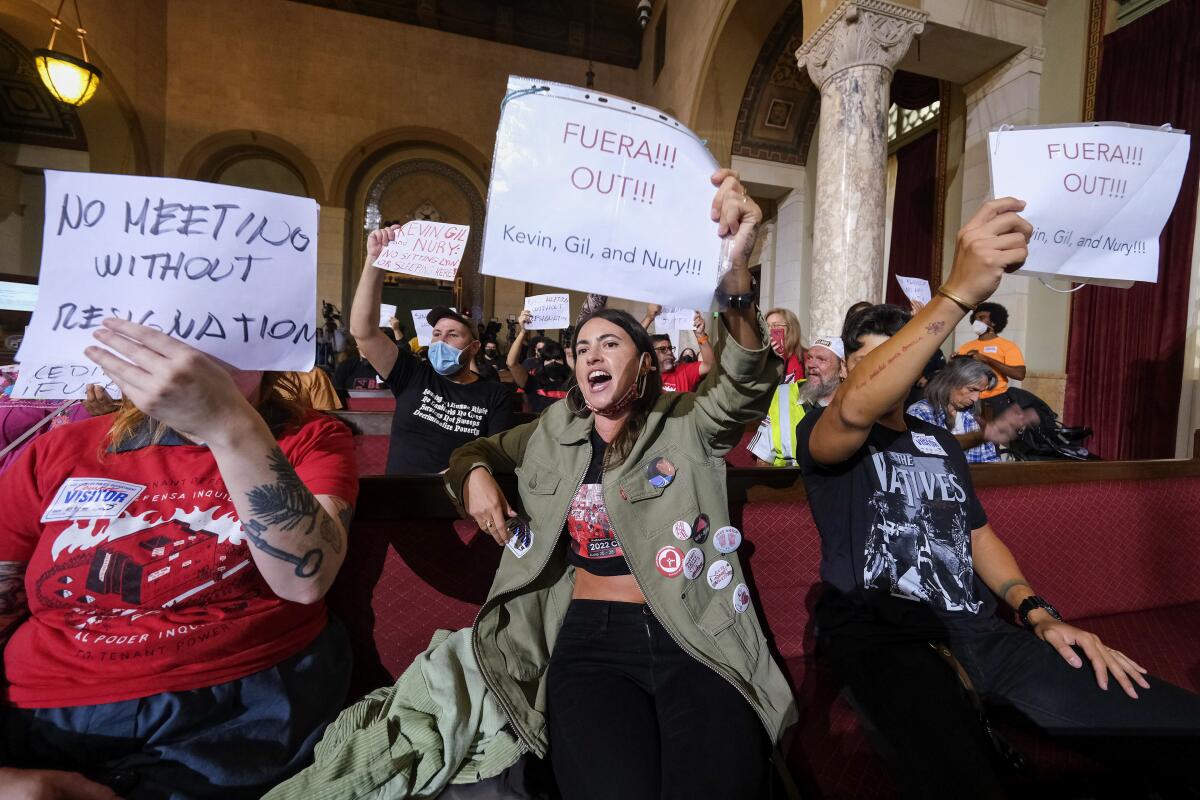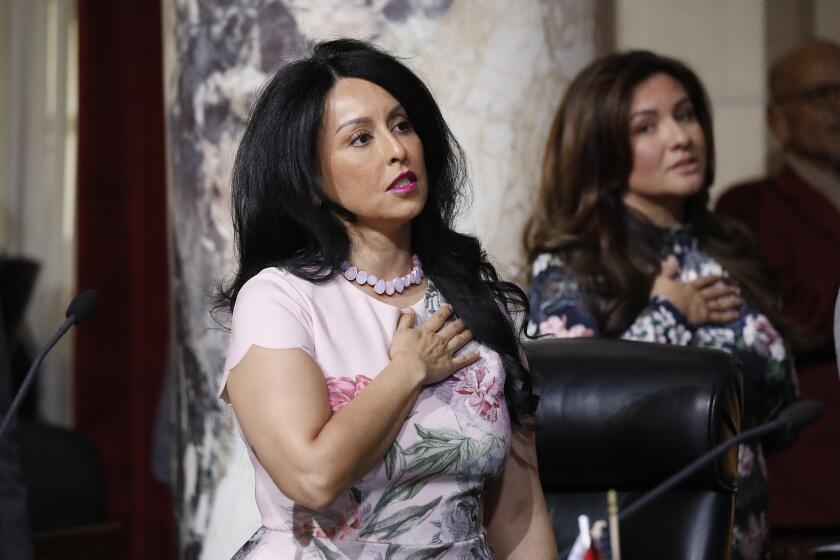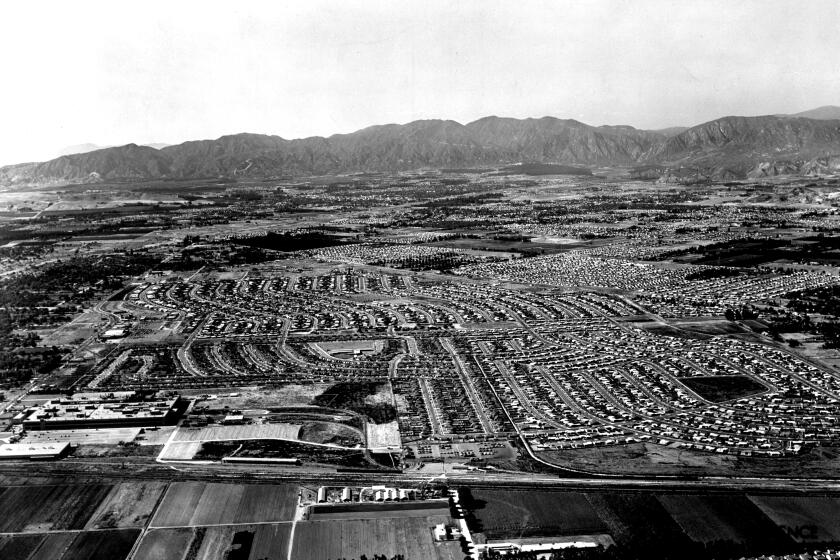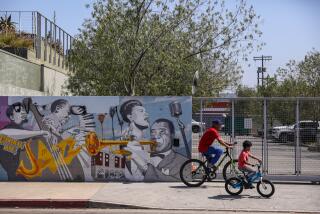Column: In that racist leaked recording, Los Angeles sees its true reflection — and it’s ugly

- Share via
I wasn’t expecting to hear a reference to my favorite childhood movie as I listened to the surreptitiously recorded conversation among Latino officials that has shaken Los Angeles to its core.
But there it was, sandwiched between then-City Council President Nury Martinez’s cruel and racist comments about Oaxacans (they’re so ugly), a Black child (he’s like a monkey), a gay colleague (“a little bitch”).
City Councilman Kevin de Léon spoke of what he called the “Wizard of Oz” effect. Black Angelenos, he implied, are overrepresented in the city’s corridors of power, because they make so much noise.
“When you’re at the side of the curtain, it’s like this big voice, it sounds big,” De León tells his colleagues. “It sounds like there’s thousands. And then, when you actually pull the curtain, is that you see the little Wizard of Oz. You know what? It’s the same thing.”
Labor leader Ron Herrera, who has since resigned, agrees that Latinos have more voting power than Black Angelenos: “It’s real simple,” he says. “You have 100 people, 52 of them are Mexicanos.… I feel pretty good about my chances of beating your ass.”
City Councilmember Gil Cedillo then pipes up. “Twenty-five or so are Black, and the 25 Blacks are shouting.”
“But,” says De Léon, “they shout like they are 250, when there’s 100 of us.”
How do some politicians get away with saying they love a city or country when they clearly hate so many people who live there?
This is some shockingly crude arithmetic. It is indisputable that Latinos in Los Angeles have faced substantial racism. Indeed, anti-Latino discrimination in Los Angeles is the stuff of legend — Zoot Suit riots, Chavez Ravine, the Chicano Moratorium. Which is why it’s doubly upsetting when Latinos who have made it to the top rung of power would kick the ladder out from other people of color.
While the Black population of the city, which has fallen steadily over the years, hovers around 9%, the Black membership of our City Council is 20%. That’s 3 out of 15 members. I’ve always thought it was healthy for our city that Black Angelenos are well represented on our City Council.
Until this desmadre, the council had four Latino members. Martinez stepped down in disgrace last week. If De Léon and Cedillo resign, as they are under intense pressure to do, there will be one, Monica Rodriguez.
If you, like our besieged Latino quartet, think that race is the only thing that matters when it comes to political representation, then sure, you could argue that since half the city’s population is Latino, the group is underrepresented at City Hall. In the zero-sum game they embraced, if someone wins, then someone else has to lose.
In any case, De Léon’s interpretation of the Wizard of Oz effect is wrong.
The real Wizard of Oz effect in Los Angeles is the lie we have told ourselves over and over that we elect leaders who embrace progressive values, especially anti-racism. We like to believe that we live in a tolerant place where differences are celebrated and all are welcome.
And yet, every few decades, the curtain is pulled back and Angelenos are violently reminded that, far from the racially harmonious paradise we’d like to believe we have, our city suffers from the same racial hatred that has afflicted this country since the very beginning.
No matter how far we’ve come, the stench of racism lingers. Too often, it expresses itself in the way our communities are developed and policed, and the way our schools are run.
After real estate agents invented racial covenants in the early 1900s, L.A. led the nation in using them. Their idea of ‘freedom’ shapes the U.S. today.
It was in Los Angeles that real estate professionals popularized the concept of the restrictive racial covenant when the city’s population was exploding in the first half of the 20th century. In the 1920s, about 95% of the city’s housing stock was off limits to people of color.
For years after the U.S. Supreme Court declared the practice unconstitutional in 1948, covenants were still boilerplate in Los Angeles real estate deeds. In fact, the 1960 deed to my parents’ first house, in Northridge, forbade them from selling to anyone who wasn’t white.
In 1965, the deadly riots that ripped Watts apart were an explosive response to decades of racial injustice.
Almost 30 years later, in 1992, the Rodney King riots were sparked by a jury that failed to convict white police officers in the brutal beating of King, a Black motorist. But it was also the violent expression of pent-up anger about overpolicing in Black neighborhoods, and the boiling over of tensions between Korean shopkeepers and their Black customers.
At the time, Tom Bradley, the city’s first — and so far only — Black mayor, was powerless to help coordinate an effective response to the violence because he and the city’s white police chief, Daryl Gates, had not spoken to each other for more than a year. Bradley had condemned King’s beating and called for Gates to resign.
“The April unrest tore at my heart, and I will not be at peace until we have healed our wounds and rebuilt our neighborhoods,” Bradley said after peace was restored. “Let us all, every one of us, pledge to make Los Angeles a beacon of mutual respect, justice and tolerance from this day forward.”
Rodney King, the Black man whose assault was captured on videotape, put it more simply: “Can we all get along?”
We can pretend to.
But when the curtain is ripped back, the ugly truth comes slithering out.
More to Read
A cure for the common opinion
Get thought-provoking perspectives with our weekly newsletter.
You may occasionally receive promotional content from the Los Angeles Times.














